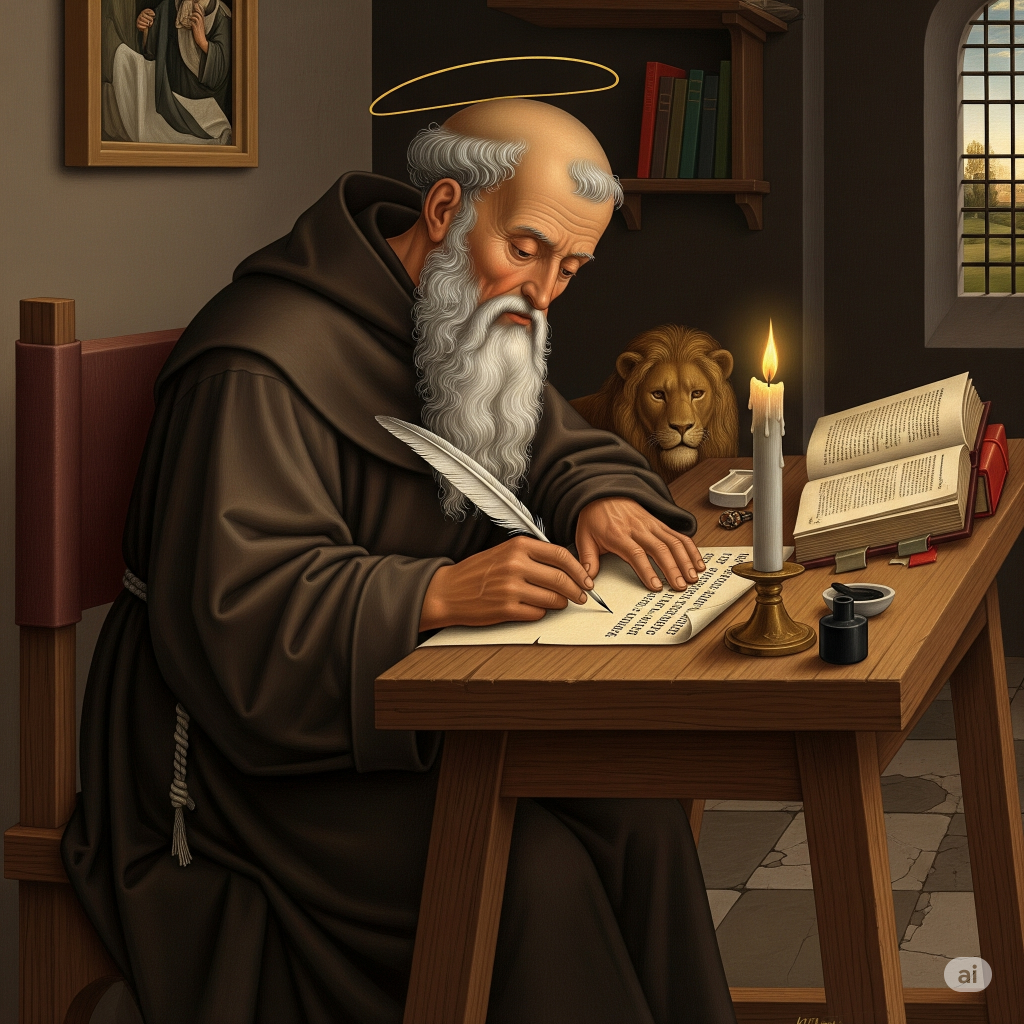
Bible Study Summary: Unveiling the Origins of Scripture – The Catholic Story of the Bible’s Formation
This in-depth Catholic Bible study will explore the rich and complex history of “where the Bible came from,” drawing upon the foundational pillars of Divine Revelation: Sacred Scripture itself, the unbroken Sacred Tradition of the Church, and the authoritative teachings of the Church Fathers and Saints. We will unpack the essential Catholic understanding that the Bible is not merely a book that dropped from heaven, but a living testament born from the Church, guided by the Holy Spirit, and faithfully preserved by the Church through the ages.
Key areas of deep research and discussion will include:
- Divine Inspiration & Human Authorship:
- Scripture: We begin with 2 Timothy 3:16 (“All Scripture is God-breathed and is useful for teaching…”) and 2 Peter 1:20-21 (“no prophecy of Scripture came about by the prophet’s own interpretation… men spoke from God as they were carried along by the Holy Spirit”). This establishes God as the primary author, working through human instruments.
- Church Fathers: Patristic writings confirm the dual authorship, recognizing the human faculties of the sacred writers while maintaining divine inspiration (e.g., St. Augustine on inspiration as an influence on the will and intellect, not mechanical dictation).
- The Primacy of Oral Tradition:
- Scripture: We will demonstrate how much of God’s Word was first transmitted orally before being written down. 2 Thessalonians 2:15 (“So then, brothers, stand firm and hold to the traditions we passed on to you, whether by word of mouth or by letter”) is central, showing the validity of both written and unwritten traditions. See also 1 Corinthians 11:2 and 2 Timothy 2:2.
- Church Fathers: Examine how early Christian communities lived and passed on the faith through preaching, liturgy, and teaching, long before the New Testament canon was finalized. Papias of Hierapolis (c. A.D. 125) attests to the importance of living oral tradition. St. Irenaeus of Lyons (c. A.D. 180) forcefully argued against heretics by appealing to the unbroken oral tradition of the apostles preserved in the churches.
- The Church’s Indispensable Role in Canon Formation:
- Scripture: The Bible itself does not contain a divinely inspired table of contents. The New Testament books were written after the Church was established by Christ.
- Church Fathers & Councils: Trace the organic process by which the Church, guided by the Holy Spirit, discerned which books truly belonged in the inspired collection amidst numerous other early Christian writings. This involved addressing heresies (like Marcionism which sought to reduce the canon), and the consensus forming around books connected to apostolic authority. Key figures include St. Athanasius (whose 39th Festal Letter in 367 AD lists the 27 NT books we have today) and St. Augustine, whose influence was critical in the councils of Hippo (393 AD) and Carthage (397, 419 AD), which definitively affirmed the Catholic canon of 73 books (46 Old Testament, 27 New Testament).
- The Council of Trent (16th Century): Understand how Trent officially reaffirmed this long-standing canon in response to the Protestant Reformation’s changes.
- The Old Testament: Discuss the Septuagint (LXX) as the Greek translation of the Old Testament widely used by Jesus and the Apostles, which included the “Deuterocanonical” books (e.g., Wisdom, Tobit, 1 & 2 Maccabees) which were part of the Christian canon from the beginning but later excluded by Protestant reformers.
- Apostolic Authority and the Magisterium:
- Scripture: The study will emphasize the role of the Church as the authoritative interpreter. 1 Timothy 3:15 declares the Church to be “the pillar and bulwark of the truth.” Matthew 16:18-19 highlights the authority given to Peter and his successors. John 14:26 promises the Holy Spirit will teach the Apostles all things and bring to their remembrance what Jesus taught, ensuring fidelity to Christ’s Revelation.
- Saints: Understand how the Saints consistently relied on the Church’s authority to interpret Scripture. Most famously, St. Augustine stated, “I would not believe the Gospel unless the authority of the Catholic Church moved me to do so.” This illustrates the profound Catholic conviction that the Bible is fully understood within the living Tradition and Magisterium of the Church.
This study will conclude by affirming that the Bible is a precious gift from the Church, interpreted within the Church, and ultimately understood through the continuous guidance of the Holy Spirit, ensuring access to the fullness of God’s revealed truth.